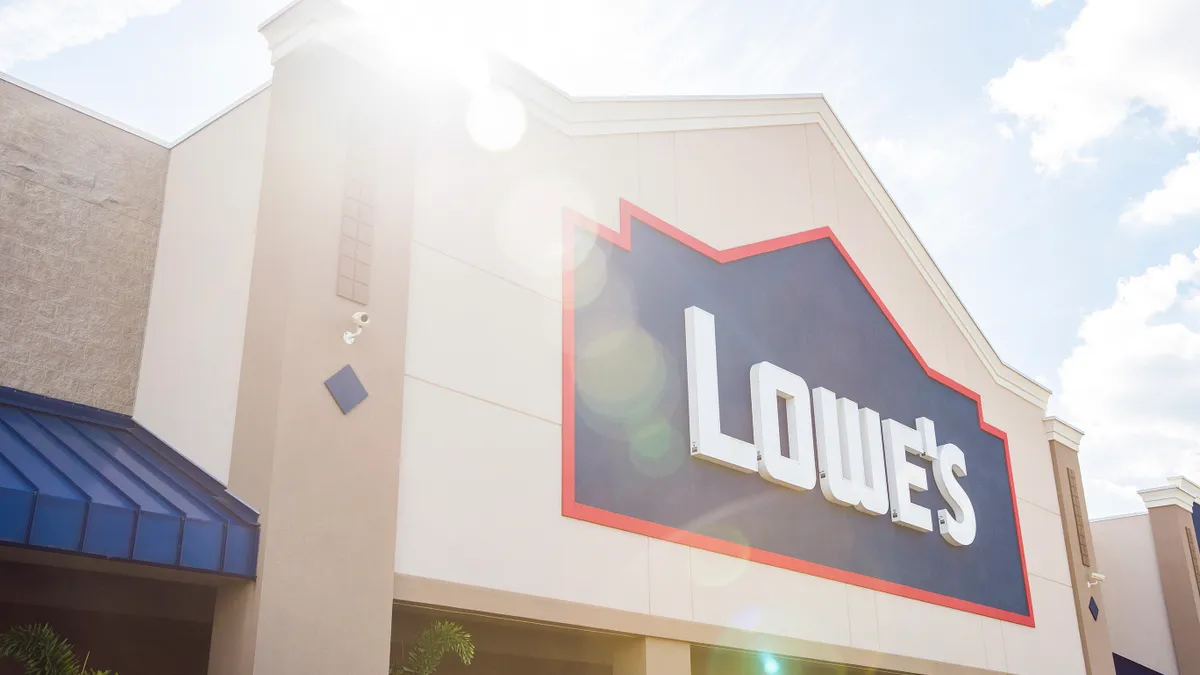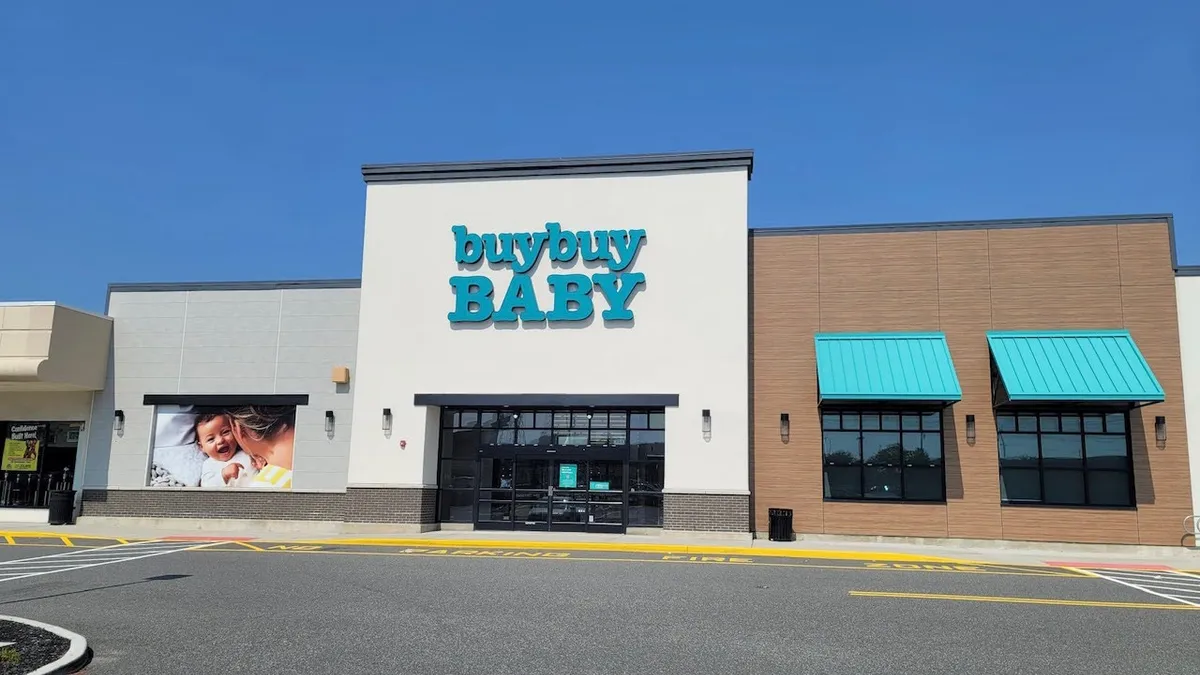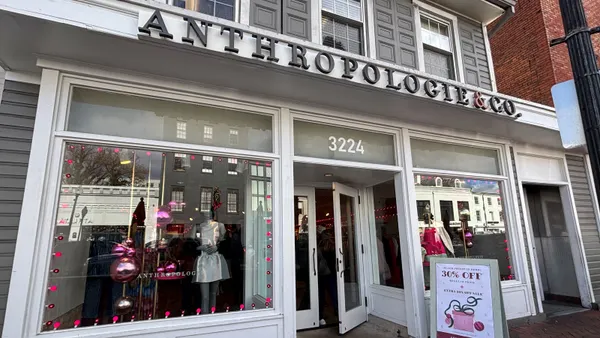RTW Retailwinds traces its history back more than a century, to 1918, when a family of blouse manufacturers opened the first Lerner Shops in New York City, and and then another 18 shops later that year.
Between then and now a lot has happened. Pandemics, economic depressions, world war. Amid all that, the retailer expanded across the country, sold itself to L Brands, changed its name to New York & Company, was sold to a Wall Street Firm, went public, changed its name again, and, as of this week, went bankrupt.
Now the owner of the New York & Co. brand may be facing the end of its life as a physical retailer, after the COVID-19 pandemic dealt a fatal blow to the company's brick-and-mortar business.
With 387 stores, RTW filed for Chapter 11 with plans to close "a significant portion, if not all" of its physical locations as well as potentially sell off its e-commerce business and intellectual property.
Searching for growth
In 2018, the company rebranded itself with the "RTW" moniker, a signal that the apparel seller, which focuses on women aged 25 to 49, was more than the "New York & Co." banner. The company had been expanding its portfolio of sub-brands, including more partnerships with celebrities like Kate Hudson for its Soho denim label and an Eva Mendes collection.
By 2019, RTW had a plan in place to grow by leaning on its celebrity collaborations to push the New York & Co. brand as well as through sub-brands, namely 7th Avenue Design Studio, Soho Jeans, Soho Street, Eva Mendes Collection, and Gabrielle Union Collection, according to Robert Shapiro, the company's restructuring officer and a director with Berkeley Research Group, in court documents.
Last year, the company launched two digitally native brands, a Kate Hudson collection dubbed Happy x Nature and Uncommon Sense, a lingerie brand. The company exited the Uncommon Sense brand just months later, in November, at a cost of $4.2 million.
But RTW needed growth from somewhere. The company's top-line revenue has been in steady decline since 2015, while comparable sales have been paltry or negative. Last fiscal year, the company posted an operating loss of nearly $62 million.
As revenue declined, the company was also physically shrinking, from 432 stores at the beginning of fiscal 2018 to 387 today. The company's e-commerce sales have increased, but still remain a fraction of the company's total revenue.
In January, RTW executives lowered their guidance after the all-important holiday season. While celebrity brands and the company's digital arm performed well, it wasn't enough to offset sales declines. "These results emphasize the urgency to adapt to the challenges we face as a business," then-CEO Gregory Scott said at the time.
Also in January, the company received notice from the New York Stock Exchange that it had fallen out of compliance after the retailer's stock started trading below $1.
By March, the company had named a new CEO, promoting chief marketer and customer officer Traci Inglis.
'Not viable'
Shapiro sounded a familiar note in explaining the retailer's decline in recent years, invoking "the shifting of sales from traditional brick-and-mortar retailers to online sellers, increased competition from big-box retailers, and changing consumer preferences." All of those forces have dragged if not bankrupted scores of other mall-based apparel retailers over the past four years.
COVID-19 has added an unprecedented disruption to the market. It forced RTW to close all of its stores in March. As Shapiro noted, the company then furloughed nearly all of its store associates, reducing payroll expenses by 78%, and in May it permanently terminated 190 corporate staffers as well as 13 district managers.
Further hurting the company, Shapiro said that the pandemic-driven shutdown included traditional sales peaks for the retailer during the Easter and Mother's Day holidays.
In mid-April, RTW disclosed that Inglis resigned abruptly before she'd even taken on the chief executive role. Following her out the door were four board members. The company offered no explanation for her departure. The company's CFO, Sheamus Toal, took over the CEO spot.
Also in April, the company hired B. Riley FBR to explore a sale of RTW's assets, according to Shapiro. By June, the company's financial state was so bad it disclosed that a bankruptcy was "probable" and later that it might have to close all of its stores in a Chapter 11 scenario.
Leading up to that disclosure, RTW had defaulted with landlords, vendors and its bank, Wells Fargo. The latter would later offer forbearance, but with multi-million dollar payments attached and a requirement the cash-strapped company pay back the entirety of its credit facility by the end of August.
The company filed for Chapter 11 on Monday. It came as no surprise by then. The future of the company's brands remain an open question, but RTW's survival as a physical retailer looks unlikely, especially given the brutal selling environment with COVID-19 still spreading rapidly through parts of the U.S.
After exploring asset sales starting in the spring, Shapiro said, "Based on market feedback, the Debtors [i.e., RTW], in consultation with their advisors, have determined that a sale of any traditional brick-and-mortar business is not viable or achievable under the current circumstances."
Toal signaled that the COVID-19 impact would not be diminishing anytime soon. "The combined effects of a challenging retail environment coupled with the impact of the Coronavirus (COVID-19) pandemic have caused significant financial distress on our business, and we expect it to continue to do so in the future," he said in Monday's press release.






















